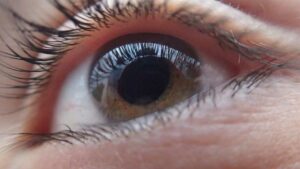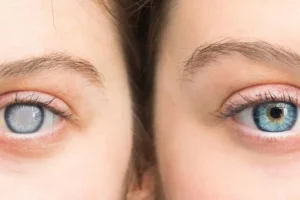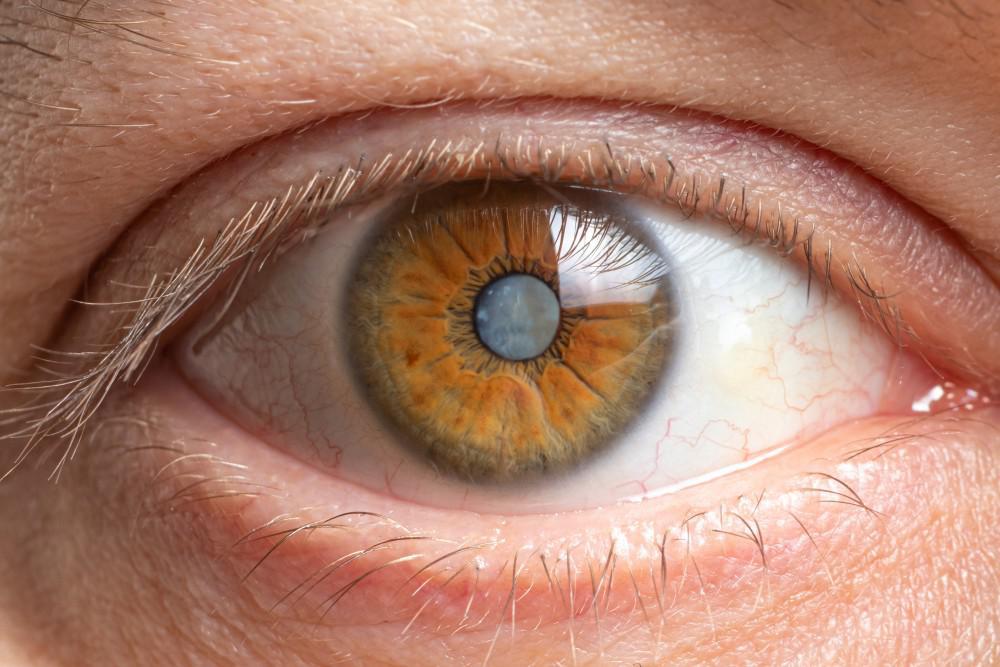Do you often find yourself struggling to see clearly during the day? Do your eyes feel tired after a long day of work? If so, you may be suffering from early-onset cataracts. This is a serious condition that can lead to vision loss if left untreated. In this blog post, we will discuss 9 warning signs that you may have early onset cataracts. If you are experiencing any of these symptoms, please see your doctor immediately!
Contents
What Does Early Onset Cataracts Mean?
 Early onset cataracts are an eye condition where the lens of your eye becomes cloudy and affects vision. It is described as more than one spot or a thin haze over the lens. Cataracts usually occur in older adults, but those who may have an early onset can develop at any age.
Early onset cataracts are an eye condition where the lens of your eye becomes cloudy and affects vision. It is described as more than one spot or a thin haze over the lens. Cataracts usually occur in older adults, but those who may have an early onset can develop at any age.
Early onset is a way of describing cataracts that occur in younger adults, children, or even infants. These cataracts are usually a result of genetic disorders, but can also be caused by medications and diseases.
Let’s further discuss some of the warning signs that signal you may have early-onset cataracts. It is important to understand that these signs may also indicate other eye diseases. It’s important to speak with your doctor if you think you may have these symptoms.
Warning Signs You May Have Early Onset Cataracts
There are several warning signs and symptoms that may be indicative of early onset cataracts, including:
Blurry vision
Your vision may become blurry or hazy, making it difficult to read or do other activities. It is like a layer of fog has settled over your eyes. For example, you may find yourself squinting more to try and make out words or images.
Glare sensitivity
You can become more sensitive to glare from the sun and other bright lights, making it difficult to drive during the day or even at night. You may also experience a halo effect around lights or objects.
Fading colors
Colors may not seem as bright and vibrant as they used to be, making it difficult to appreciate the beauty of nature or even recognize the colors of traffic lights.
Poor night vision
You may find it difficult to see in the dark, even when you’re wearing glasses or contact lenses. You may also experience double vision at night or struggle to adjust your eyes between bright and dim light.
Faded vision
Your vision can become less sharp and clear over time, making it difficult to see distant objects or read a book without squinting. In fact, faded vision can be a common symptom of early-onset cataracts.
Double vision
Seeing two images instead of one is a common symptom of early onset cataracts, and can make it difficult to accurately focus on objects or read.
Halos around lights
Halos are circles of light that can appear around objects or lights, making them seem bigger than they actually are. This can also cause you to experience a halo effect, making it difficult to distinguish between different colors or shades.
Frequent changes in eyeglass prescriptions
As your vision deteriorates due to cataracts, you may find yourself needing to change your eyeglass prescription more often in order to correct your vision. And you might even find that eyeglasses no longer provide any relief from your cloudy vision.
Increased nearsightedness
Finally, if you experience a sudden increase in nearsightedness, or an inability to see far away objects clearly, this could be a sign of early onset cataracts. This condition, however, can also be caused by other eye diseases, so it’s important to have your eyes examined by an eye specialist.
If you are experiencing any of the above warning signs, it is important to see your doctor right away for a comprehensive eye exam. Early detection and treatment can help stop the progression of cataracts and keep your vision healthy.
Common Risk Factors
 There are several risk factors associated with early-onset cataracts, including
There are several risk factors associated with early-onset cataracts, including
- Age: It is most common in people over the age of 40, though it can occur at any age.
- Diabetes: Severe or long-term diabetes can increase the risk of early-onset cataracts.
- Smoking: Smoking increases the risk of developing cataracts earlier than those who do not smoke.
- Ultraviolet (UV) Radiation: Sun exposure, tanning beds, and other sources of UV radiation can also increase the risk.
- Family history: Having a family member who has had cataracts increases the risk of developing them as well.
- Certain medical conditions: There are also some medical conditions that can increase the risk, such as glaucoma, chronic inflammation of the eye, and corticosteroid use.
It is important to be aware of these risk factors in order to reduce the chance of developing early-onset cataracts. More often, early-onset cataracts occur without any of these risk factors being present. As sometimes, these cataracts are simply a part of the normal aging process.
How Can You Manage It?
When it comes to managing early-onset cataracts, prevention is the best strategy. Here are some of the tips that can help you manage the condition:
- Wear sunglasses when you’re out in the sun, and check your eyes regularly for signs of vision changes.
- Have regular eye exams to check for signs of cataracts and other eye problems.
- Quit smoking, if you smoke.
- Eat a healthy diet that includes foods rich in antioxidants, such as carrots and spinach.
- Check with your doctor to see if any medications or supplements could help prevent the progression of cataracts.
- Wear eye protection whenever you are participating in activities that put your eyes at risk for injury, such as contact sports.
- Limit your exposure to bright lights, such as when you’re reading or watching TV in a dimly lit room.
- Get plenty of rest and regular exercise to help keep your eyes healthy.
- Manage any underlying conditions such as diabetes or high blood pressure that can contribute to the development of cataracts.
- Have regular check-ups with your ophthalmologist or optometrist to detect any changes in the lens of your eyes and take action accordingly.
- Consider surgery if it’s necessary, as early diagnosis can help you get the best possible outcome from treatment.
Cataracts can be a serious condition, but with proper management, you can lessen the chances of it progressing or causing vision loss. Talk to your doctor if you have any concerns about early-onset cataracts and follow the tips outlined above to help keep your eyes healthy.
Even if you get regular check-ups and take steps to prevent the progression of cataracts, it is important to be aware of the symptoms of early-onset cataracts so that you can recognize them as soon as possible. With the right treatment, it is possible to slow the progression of cataracts and preserve your vision.
Conclusion
To conclude, early onset cataracts are often difficult to diagnose in their early stages. But it is easy with the above-mentioned warning signs to keep an eye out for. If you notice any of these signs, it is essential to seek medical advice from your optometrist or ophthalmologist immediately.
Early detection and treatment are key for managing the progression of cataracts and preserving vision health. By regularly visiting your eye care provider and undergoing comprehensive exams, you can help protect yourself from the development and progression of cataracts in the future.
For more information and guidance, be sure to contact Mantra Care. At MantraCare we have a team of experienced eye surgeons, who will be happy to answer any questions on cataract surgery. Call us at +91-9711116605 for any inquiries.
